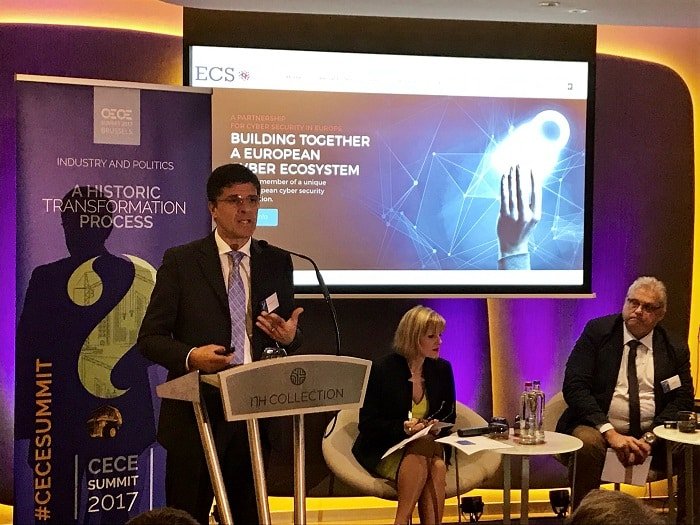The construction equipment industry is operating below its digital potential. Within the next years, companies need to adapt their organizations, further digitise their machines and operations and promote open innovation along the way. This will be central for the construction industry to remain competitive and will impact its dynamics and the OEM landscape drastically. The issue of construction machinery digitisation was discussed at the Technical Forum, held during the CECE Summit on October 12 in Brussels.
BIM triggers off digital transformation on the construction site
Experts were sure that a bigger digital transformation in the construction equipment industry will come as building projects go digital, e.g. through building information modelling (BIM). Sue Arundale, Director Technical and Environmental Affairs at FIEC, the European Construction Industry Federation, explained that BIM would accelerate the deployment of smart connected construction machines and change business models considerably. Presenting FIEC new group on Construction 4.0, Sue Arundale welcomed the invitation to join forces across the value chain. Big data solutions may become a critical differentiation factor and value creation driver already in the coming years, as data banks build up and customers get increasingly sophisticated in their demands. Digitised machines will be more transparent to their customers in terms of performance, breakdowns, and costs. OEMs must find new strategies to cope with the transparency. According to Geert Maes, Senior Manager, Standards Department at CEN-CENELEC, digital networking solutions must be developed and standardized to make possible a cooperative collaboration of all decentralized parties on a construction site. Skills and roles of operators are about to change dramatically: being an operator today means to become the central coordinator of the process, with the need to develop completely new skills.
More work ahead to ensure data integrity
Lanfranco Marasso of ECSO, the European Cyber Security Organisation, explained on the threats of digitisation as cybercrime can severely cripple companies. Companies need to incorporate cyber safe technology into their processes. His proposal supports Contact: Roma Guziak Phone: +32 2 706 82 26 E-mail: [email protected] Date: Brussels, 12th October, 2017 BluePoint | Bd. A Reyers 80 | B-1030 Brussels (Belgium) | Tel.: +32 2 706 82 26 | Fax: +32 2 706 82 10 [email protected] | www.cece.eu 2 digitally-built environments, including intelligent buildings and smart cities, by providing a framework to manage security risks that affect a built asset.
Common aligned European approach is needed
The EU and the Member States need to create the respective digital framework like high speed data lines or open standards for data exchange. There is also much room for improvement when it comes to digital skills. However, although many EU states push BIM for example, there is the danger of digital divide as some countries are particularly strong when it comes to digitisation of the industry. Due to better coordination of all input factors through digital tools, construction and engineering costs are expected to be reduced by 20%.
The CECE Summit is a biennial central networking event for construction equipment manufacturers in Europe and EU politicians. It also attracts representatives of suppliers, dealers, contractors, rental companies, industry representatives and exhibition partners. This year’s theme was “Industry and Politics: a historic transformation process”.
Picture: From left: Lanfranco Marasso, ECSO, Sue Arundale, FIEC, Geert Maes, CEN-CENELEC – Source: CECE

12 October 2017 Press release Joint European approach is needed to develop a world class digital construction sector
 Constructionshows
Constructionshows